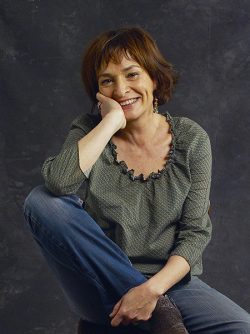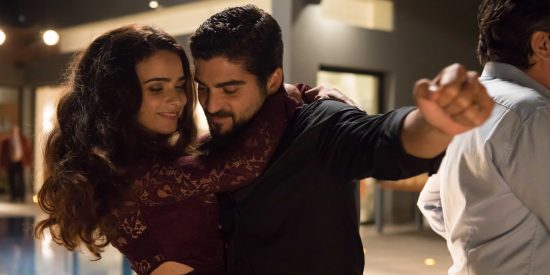TIFF 2018: In Conversation with Michal Aviad, Director of Working Woman
 No stranger to the film industry, director Michal Aviad has been a strong female voice since she started making movies. Before the Time’s Up movement, she was telling stories first in documentaries, then in narrative, but always from the women’s point of view. She has never shied away from the fact that these were stories worth telling even if the industry traditionally didn’t always support this. With change slowly happening, this proudly feminist filmmaker is a veteran voice needed to propel and encourage all of us to continue on the journey.
No stranger to the film industry, director Michal Aviad has been a strong female voice since she started making movies. Before the Time’s Up movement, she was telling stories first in documentaries, then in narrative, but always from the women’s point of view. She has never shied away from the fact that these were stories worth telling even if the industry traditionally didn’t always support this. With change slowly happening, this proudly feminist filmmaker is a veteran voice needed to propel and encourage all of us to continue on the journey.
“I’m second generation of women [in my family] who have a career,” explains Aviad, “So my mother always worked for a living and I always knew that I needed to be independent economically. My mother used to tell me, ‘You might find yourself in the world with two children that you have to feed, so you need to work. You need to work and you need to have a job and you need to have a profession.'” And directing was it. Originally from Israel, Aviad completed her graduate studies in San Francisco. Living there for ten years it’s here she started filming in the 1980’s. Since then she’s completed ten films – documentaries and now two narrative pieces as well to solidify herself as a consistent part of the cinematic landscape.
The constant in all of Michal’s work is that women are always front and centre. “I don’t know why, but I knew from the very beginning that I want to make films from point of view of women…. it occurred to me that what was missing in cinema is women’s points of view.” So through her first documentaries, she went to work telling stories, political and unapologetically feminist: Jenny and Jenny (1997), is a story of two teenaged working class girls, Ever Shot Anyone? (1995) explores the Israeli male culture from a woman’s perspective, Diamona Twist (2016) tells the story of seven women who arrived in Israel by ship and were sent to a newly established desert town. It’s clear speaking to the director that she is very passionate about these women’s stories being told. She explains, “I’m a political filmmaker in the sense that my cinema and my politics go hand in hand very much… I try to make films about what I believe in and I feel very committed.”
Aviad is also clear that there’s something different that is brought to the screen when a women’s voice is properly utilized. “I don’t think it’s black and white, women, men. Not at all,” she reveals. “I think it’s the shift in perspective and I think that all the films that I made are about different issues – about first-hand conflict, about religion in the Middle East, about rape, about all kinds of issues. But the fact that they’re from the women’s point of view will shed new light on issues that have become cliché or stereotyped. Bring some kind of new freshness to it.
A veteran of documentary filmmaking, Aviad started making fiction work 7 years ago. Michal noted that she realized there were boundaries to what she could say in documentaries and she needed a way to surpass those limitations. “In documentaries, you can tell only what has happened in the past,” she continues, “All of a sudden I understood at some point that sometimes fiction can be closer to reality than documentaries and that’s when I moved to fiction.”
Working Woman has been in the making since 2012. Aviad worked alongside co-writers Sharon Eyal and Michal Vinik to make things as authentic as possible. Says the writer/director, “I wanted to explore [this relationship] seriously in the sense of what I would have done if this were to happen. And that’s what we did when we wrote it. I wrote it with two other women. One at a time in dialogue we were really trying to put ourselves in every moment.” The result is what feels like an honest portrayal of this woman’s relationship with her boss. What begins as an off remark about her hair or clothing soon snowballs into something much more sinister. It’s a story to which many women can relate.
With all the changes to the industry over the last year or so, the hope is that more stories like this come to the forefront and give women the courage to stand up. And while Aviad appreciates what has occurred within her industry she is fast to say it shouldn’t end there. “I think that what happened is great, but it’s not enough,” she noted, “I think that our industry is just one industry. When all chambermaids and all nurses and all secretaries come out that’s when there’s going to be a real change. I think that the change that we need is much more profound than this cosmetic kind of stuff. We really need to change our culture. This relationship between women and men. A change that will, unlike what people who are afraid of the #metoo movement say, is going to be sexier, more fun, flirtier, and sex-positive. It’s not going to be puritan like everybody tells us.” While no one can predict the future on where all this is headed, one thing does seem certain – that Michal Aviad will be there to make sure women’s voices are always a part of the stories being told and the films that we see.











